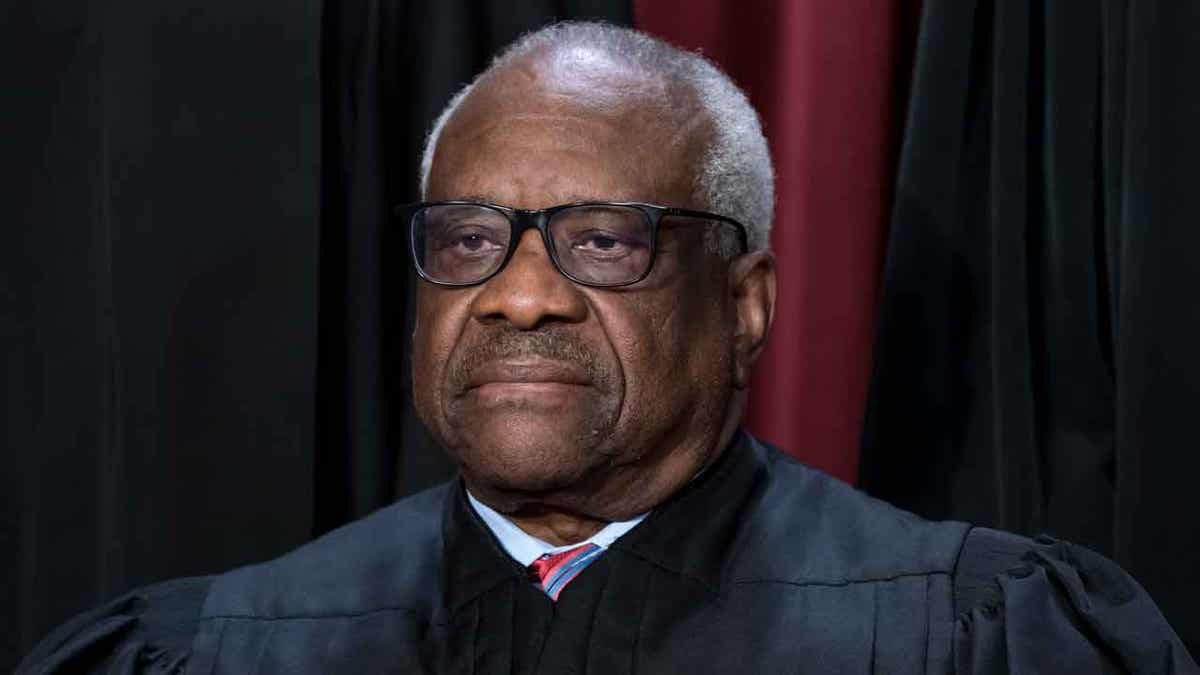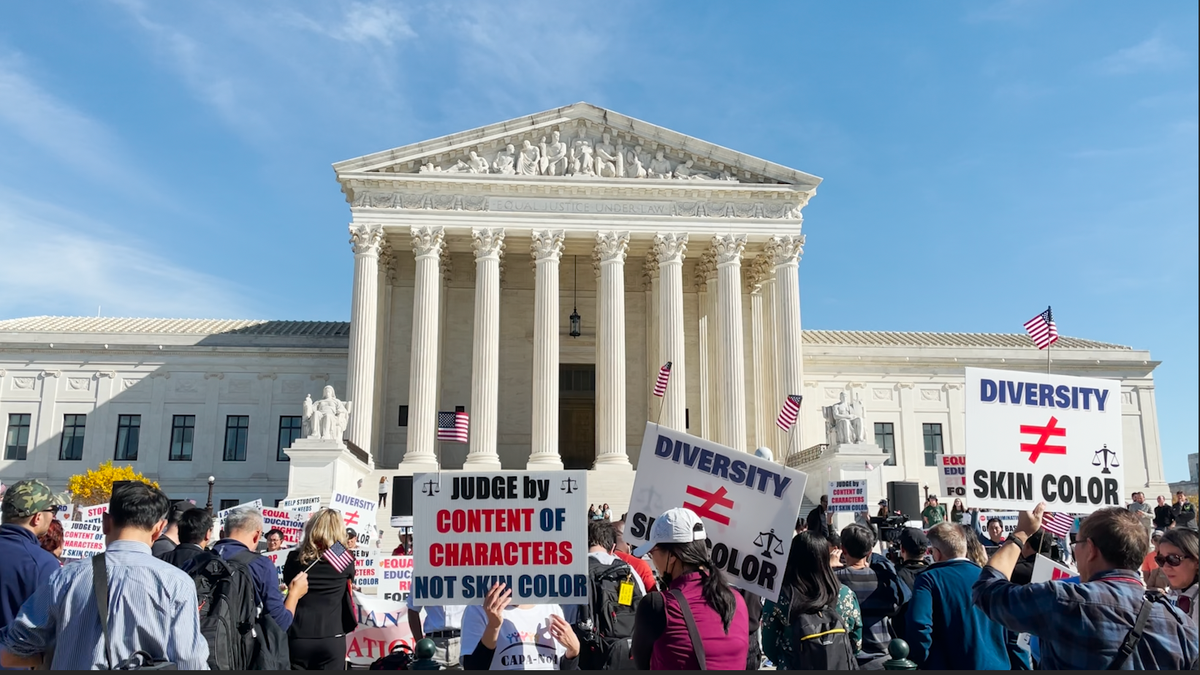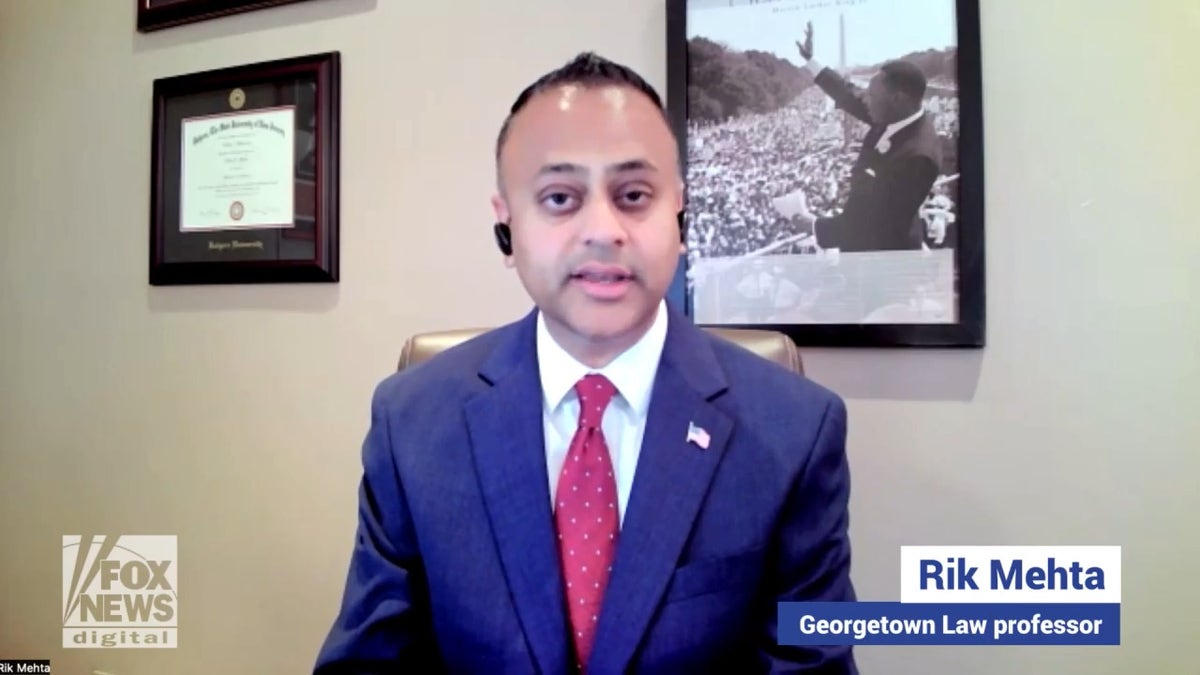Georgetown Law professor sides with Justice Thomas questioning the term 'diversity' in race-based admissions cases
Georgetown Law's Rik Mehta explains why he agrees with Justice Clarence Thomas' "confusion" on the use of the word "diversity" in oral arguments for cases involving race-based admissions policies.
A Georgetown University Health Law professor explained in a new interview why he sides with Supreme Court Justice Clarence Thomas on affirmative action.
During oral arguments last week involving race-based admissions policies at the University of North Carolina at Chapel Hill (UNC), Thomas asked state Solicitor General Ryan Park to explain the educational benefit to considering race as a factor in college admissions. Park said that in studies involving stock trading results, "racially diverse groups of people… perform at a higher level."
"The mechanism there is that it reduces groupthink and that people have longer and more sustained disagreement, and that leads to a more efficient outcome," Park said.
"I guess I don't put much stock in that because I've heard similar arguments in favor of segregation, too," Thomas replied.

Associate Justice Clarence Thomas joins other members of the Supreme Court as they pose for a new group portrait, at the Supreme Court building in Washington, Oct. 7, 2022. (AP Photo/J. Scott Applewhite) (AP Photo/J. Scott Applewhite)
"I've heard the word diversity quite a few times, and I don't have a clue what it means. It seems to mean everything for everyone," Thomas also said.
Mehta, a former Republican nominee for the U.S. Senate, agreed with Thomas' line of questioning.
"Well, I certainly agree with Justice Thomas questioning what is diversity?" Mehta told Fox News Digital. "Diversity means so many different things to so many different people that where in the context of the Equal Protection Clause… does diversity start and stop? To a point where you’re looking at subjective factors rather than objectively looking at individuals regardless of race in order to accept the best-rated students."
"I agree with Justice Thomas’ confusion on the use of the term diversity," Mehta later added. "And again the want of moving the country forward to be more race-neutral."
The long-anticipated cases at hand deal with the admissions policies of Harvard and UNC. Students for Fair Admissions (SFFA) sued both schools, alleging their policies discriminate against Asian-American applicants by using race as a factor in the admissions process.
AFFIRMATIVE ACTION CASE: JUSTICES WERE ‘ON FIRE’ OVER HARVARD'S ACTIONS, SAYS ACTIVIST IN HEARING

Equal Education Rights for All rally, in Washington D.C. October 30, 2022. (Fox News Digital)
WHAT'S AT STAKE AS THE SUPREME COURT CONSIDERS BANNING RACE IN COLLEGE ADMISSIONS: ‘BASIC FAIRNESS’
Last week's oral arguments highlighted in particular the issue of the personal score. SFFA lawyer Cameron T. Norris had previously alleged that Harvard discriminates against Asian-American applicants by assigning them "significantly lower personal ratings," which measures applicants’ character, than any other student group.
Former U.S. Solicitor General Seth P. Waxman, arguing on behalf of Harvard, noted that two lower court rulings concluded that the college did not discriminate against Asian applicants. But he received pushback from Justice Samuel Alito, who said the record shows "that Asian student applicants get the lowest personal scores of any other group."
"I think the issue at hand is that many Asian Americans, White Americans that have applied have been ranking lower on personal ratings when looking at objective numbers, which really boils down to whether or not race was the factor," Mehta said. "The reason why they had lower personal ratings."

Georgetown Law's Rik Mehta explains why he agrees with Justice Clarence Thomas' "confusion" on the use of the word "diversity." (Screenshot/Fox News Digital)
The professor argued that "on paper" at least, some of the rejected applicants had the exact qualities these schools were purportedly looking for, yet still didn't make the cut.
"Let’s just look at it subjectively about some of the plaintiffs, some of the applicants," the professor said. "You’re looking at students that have scored top 1 percent of their class, 1550 on their SAT, authored books, started advocacy councils. They have literally done everything that a university looks for at being the highest achieving individuals, and yet they’re getting waitlisted."
"When put on paper comparatively, their accomplishments seem to outweigh and exceed others that have been accepted," he added.
But Mehta predicted the Supreme Court will bar the practice from being used in higher education. And with it, he foresaw a welcome change in the U.S. education system – one that will look more "race neutral."
"You’re going to see many educational systems – and many have already done this – is move toward a race neutral way of admitting students," Mehta said. "There are other ways to create that so-called diversity in the classroom. You can look at economic status, zip codes, and other ways where race is not the predominant factor in admitting while still achieving the goals that the school wants to achieve."
"Generally speaking, I don’t see a major change in the way that the school, the student body is assembled," he added. "What I do see, is a change in the way that admissions offices will no longer be looking at race as a criteria."
CLICK HERE TO GET THE FOX NEWS APP
Fox News' Tyler Olson contributed to this report.

